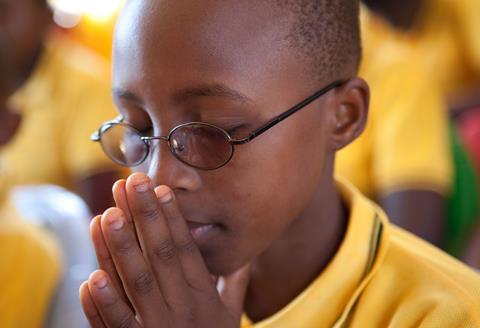Legislators are questioning the rights of faith schools in Australia to recruit staff that hold orthodox Christian views. Stephen McAlpine explains why he believes this is an attack on religious freedom

Are some rights more equal than others?
That question is central to a growing debate in Australia around the rights of faith-based schools to choose their staff according to their religious beliefs and practices.
Independent schooling in Australia is big business. And independent Christian schooling drives it. Over one third of Australian families choose independent schools over state schools for their education.
For the past 40 years Christian schools have boomed. These schools are different to the older, more traditional church grammar schools. Many were established in the 1980s by godly parents and teachers who wanted a holistic faith-based approach to education. So, by and large, they have a biblically orthodox and evangelical supporter base.
But what started off small, with few funds and many hand-wrought buildings, has blossomed into a multi-billion dollar sector, with public funds being directed towards institutions that many secular parents have now decided to send their children to.
Governments have realised that such schools are cost effective for the State, providing education at a much lower cost than the public sector. It’s no wonder the average local MP turns up at every awards ceremony and speech night at a faith-based school. They’ve become integral parts of their communities.
And the majority of parents? Sure they don’t go to church, and have no faith framework themselves, but low-to-moderate fee-paying Christian schools in Australia have a great reputation for pastoral care, and bang-for-your-buck education standards.
More than that – they have a sense of community that is attractive in an increasingly isolating and polarised secular world. And when the local government school struggles with high staff turnover, unchecked bullying and a progressive agenda at odds with many more conservative constituents, then what’s not to like?
Well, according to some human rights activists, LGBT groups, and a significant number of parliamentarians, quite a lot, as it happens.
One of the main accusations against Christian schools is that they are discriminating against some of the most marginalised communities, namely the LGBT community. And there is a concerted effort being made by state and federal legislators to dilute their religious character, by preventing Christian schools from recruiting staff based on their Christian beliefs.
Much of this is dirty tactics. On the more extreme end, activists have been calling on Christian schools to lose the right to expel students who identify as gay or trans, despite there being no history of this happening, nor indeed any desire to do so. So it’s a solution looking for a problem.
In fact, Christian schools have been at pains to point out that their biblical framework means that they honour all people as made in the image of God. The freedom to hold certain religious beliefs and to teach them is different to forcing students to believe it and practice it themselves.
Further to this, proponents of the legislation are arguing that schools should lose the right to hire and fire staff on the basis of their sexual practises. They insist that religious belief is personal and what goes on outside the hours of school in privacy should have no bearing on a staff member’s employment.
When we get to the nub of the argument, we begin to realise that what we have are two competing views of human flourishing. Those who oppose the rights of Christian schools to hire and fire don’t merely believe that personal sexual rights trump religious rights as a more fundamental part of what it means to be human. They also view the Christian perspective on sex and identity as harmful in and of itself. They think that all right-minded governments should curtail such schools, for the good of the community.
The reason this argument is so hot in Australia – and indeed increasingly across the West – is that the Christian anthropology that has been baked into our culture is starting to break apart.
Progressives in the West understand that educational institutions are the key vehicle for promulgating their own vision of humanity
Christian schools can argue all they like for a holistic biblical view of humanity that encapsulates dignity and worth for everyone despite their sexual identity or practises. And they can argue for the Christian viewpoint to be permitted as a valid viewpoint in the public square and worthy of government funding. But if such a viewpoint is seen by their opponents as not only wrong, but bad and harmful – a threat to the rights of minority groups – then a collision is coming.
The argument goes like this: retrograde and harmful views need to be scrubbed from our collective vision of human flourishing, and if so much recent legislation around conversion therapy practices and same-sex marriage has been enacted, then why is the government still funding schools that discriminate against staff members who are gay or trans?
You can see why this is an oil and water situation. Progressives in the West understand that educational institutions are the key vehicle for promulgating their own vision of where humanity is headed. To either shut down such schools, or at least water down a central tenet of their teaching and their community life in order to promote a thoroughly secular view of anthropology, is their ultimate aim.
And the current state of the legislation? Caught up in the bunfight of federal parliament. Those seeking its passing now find themselves unable to explain to a very nervous Prime Minister, Anthony Albanese, why a system of schooling that has served so many so well over so many years, should be forced to change, especially when so many former students, Christian or not, extol the virtues of their education.
The Prime Minister is trying to walk a fine line and appease both constituencies. And in the process, no one seems happy.
If this legislation were a report card, it would read “Could do better”. Watch this space to see where it all ends up




































